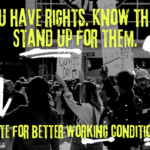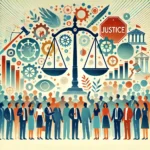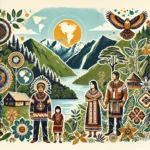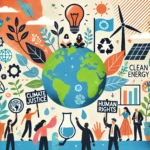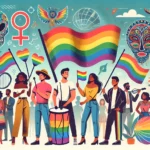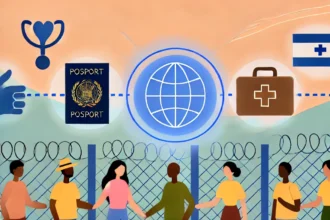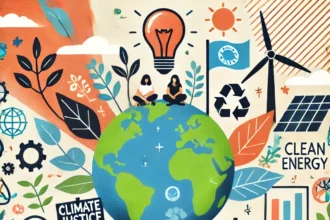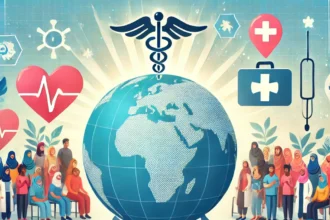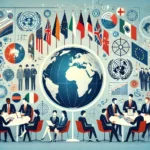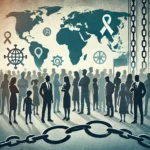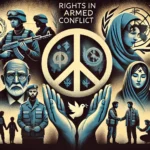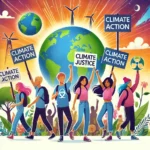Introduction: Why Do Human Rights Matter?
id you know that over 9,000 complaints of racial discrimination were brought to the UN under the Convention on the Elimination of All Forms of Racial Discrimination (CERD), and 80% of the world’s population still lives under governments that limit political freedoms? These figures highlight both the progress and challenges in protecting human rights globally. Human rights are not just ideals—they are actionable principles that shape lives, ensure justice, and uphold human dignity.
From campaigns that dismantled apartheid in South Africa to recent legal victories protecting Indigenous land rights in Brazil, the impact of human rights advocacy is undeniable. These successes demonstrate that when people mobilize around these universal values, transformative change is possible. So, what drives this movement for equality and justice? And how do we ensure that human rights work for everyone, particularly the most vulnerable?
Defining Human Rights: Basic Freedoms for All
Human rights are the inalienable freedoms and protections every individual holds simply by being human. They safeguard against abuses, enable participation in society, and affirm the dignity of all. From the right to life and liberty to freedom of expression and religion, these rights create the foundation for justice and inclusion.
The Role of the United Nations in Defining Human Rights
The Universal Declaration of Human Rights (UDHR), adopted in 1948, has often been critiqued for reflecting a colonized perspective, as it fails to fully incorporate the lived experiences and systemic inequalities faced by women, Afro-descendants, Indigenous peoples, and other minorities. While the UDHR lays the foundation for human rights, its framing did not sufficiently address the intersectionality of race, gender, and culture, nor the unique historical injustices endured by these groups.
Today, however, we have critical advancements within the United Nations framework that seek to rectify these omissions. Instruments like the Convention on the Elimination of All Forms of Racial Discrimination (CERD) and the Convention on the Elimination of All Forms of Discrimination Against Women (CEDAW) allow us to emphasize the importance of combating racial discrimination and promoting gender equality. These conventions provide targeted mechanisms to address the systemic challenges faced by marginalized communities and to hold states accountable.
In addition to these conventions, spaces such as the United Nations Permanent Forum on People of African Descent (UN PFPAD) and the United Nations Permanent Forum on Indigenous Issues (UN PFII) offer platforms for direct advocacy and engagement. Notably, the UN PFPAD is making significant strides toward the elaboration of a Declaration on the promotion, protection, and full respect of the human rights of people of African descent. General Assembly resolution A/RES/76/226 (December 2021) tasked the Forum with contributing to the draft Declaration, building on its mandate outlined in A/RES/75/314 to act as a consultative mechanism and improve the quality of life for Afro-descendant communities. In preparation for early discussions, the Permanent Forum has issued a call for viewpoints, ensuring diverse and inclusive input.
Human rights are the basic freedoms every individual possesses simply by being human. These rights protect against abuses and empower individuals to live freely, participate fully in society, and affirm their inherent dignity. As global advocacy continues to evolve, it is imperative to center intersectionality and elevate the voices of historically marginalized communities to achieve true equity and justice.
Key Principles of Human Rights
- Universality and Inalienability Human rights are for everyone, everywhere, and cannot be taken away.
- Equality and Non-Discrimination Every individual deserves equal treatment, regardless of race, gender, or other status.
- Indivisibility and Interdependence Civil, political, economic, and social rights are interconnected; weakening one impacts all..
How the United Nations Champions Human Rights Globally
The United Nations works extensively to protect and promote human rights around the world. Organizations within the UN, like the UN Human Rights Council, monitor human rights practices globally and support efforts to address violations through both humanitarian and diplomatic means.
Global Treaties and Conventions Supporting Human Rights
The United Nations collaborates with countries worldwide to establish treaties and conventions that protect fundamental rights and freedoms. Key agreements, such as the International Covenant on Civil and Political Rights (ICCPR) and the Convention on the Rights of the Child (CRC), set universal guidelines that help ensure governments uphold these standards.
Additionally, specialized instruments like the Convention on the Elimination of All Forms of Racial Discrimination (CERD) and the Convention on the Elimination of All Forms of Discrimination Against Women (CEDAW) play a vital role in addressing systemic inequalities. CERD focuses on combating racial discrimination in all its forms, recognizing the need for targeted measures to protect individuals and communities affected by racism and related intolerances. Similarly, CEDAW is a critical tool for advancing gender equality, challenging the structural barriers that hinder women’s rights and promoting their full participation in all spheres of life. These treaties provide essential mechanisms for advocacy, monitoring, and accountability, enabling civil society and governments to address the root causes of discrimination.
Spaces like the Commission on the Status of Women (CSW) further amplify these efforts by creating a global forum for advancing gender equality and empowering women and girls. CSW brings together UN Member States, civil society organizations, and other stakeholders to evaluate progress, share best practices, and develop policies that promote women’s rights and gender equity. As the primary intergovernmental body dedicated to gender equality, the CSW is crucial for fostering international collaboration and shaping a more inclusive global agenda.
By integrating these conventions and platforms into global human rights advocacy, the UN ensures a more comprehensive approach to tackling intersecting forms of discrimination and creating equitable opportunities for all. These frameworks reaffirm the principle that human rights are universal, indivisible, and essential for the dignity and well-being of every individual.
Conclusion: A Collective Call to Action
Human rights are more than lofty ideals—they are essential for a just and inclusive society. Achieving this vision requires a renewed focus on equity, particularly for historically marginalized communities. This means addressing racial inequities, advancing gender equity, and promoting the inclusion of underrepresented voices.
By leveraging tools like CERD, CEDAW, and forums like the UN PFPAD, the global community can continue to dismantle systemic barriers and build a future where dignity, freedom, and justice are not privileges but universal realities. Together, through advocacy and action, we can transform the principles of human rights into meaningful change for all.
What do you think is the most pressing human rights issue today? Share your thoughts in the comments or join our poll to make your voice heard!


